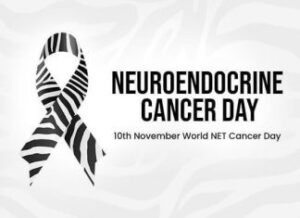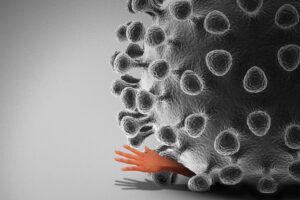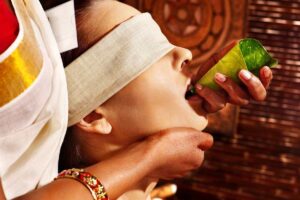
Herbal drugs constitute a major share of all the officially recognized system of health in India be Ayurveda, Yoga, Unani, Siddha, Homeopathy and Naturopathy, except Allopathy. More than 70% of India’s population still use these non-allopathic systems of medicine. Currently there is no separate category of herbal drugs or dietary supplements, as per the Indian Drugs Act. The common reasons for tilting of common man towards herbal drugs are frustrating side effects and lack of the curative value in modern medicines.
We conducted a study to document the common traditional medicine practices, assess the local people’s preference for traditional medicines (herbal medicine) versus other different systems of medicines and lastly to determine the awareness about the different systems of medicine. Here’s what we learnt so far:
HOMEOPATHY: Homeopathy remains one of the most controversial branches in therapeutics. Homeopathy is a system of treatment (branch of medical science) that works on the principle of “Similia Similibus Curcenter”, which means let similar things take care of similar things. Advances in biotechnology have led to novel diagnostic and therapeutic approaches that have rendered medicine both safer and more efficacious. In spite of this progress (or maybe because of it) the interest in alternative and non-conventional forms of medicine is also growing.
Patients intimidated by the complexity and the cost of biotechnology may find these therapies more friendly and more congruent with their personal desires. Complementary and alternative medicine (CAM) claims to take advantage of remedies present in nature and to minimize or refuse the use of synthetic medications. These are seen as foreign substances that threaten the wholesomeness of the human body, but these thoughts can have misleading consequences.
Homeopathic physicians seek to cure their patients on the physical, mental and emotional levels, and each treatment is tailored to a patient’s individual needs. Homeopathy is generally a safe treatment, as it uses medicines in extremely diluted
quantities, and there are usually minimal side effects. Its non-toxicity makes it a good choice for the treatment of children. Another benefit of homeopathy is the cost of treatments; homeopathic remedies are inexpensive, often a fraction of the cost of conventional drugs.
Homeopathic remedies are effective in treating infections, circulatory problems, respiratory problems, heart disease, depression and nervous disorders, migraine headaches, allergies, arthritis, and diabetes. Homeopathy is a good treatment to explore for acute and chronic illnesses, particularly if these are found in the early stages and where there is not severe damage. Homeopathy can be used to assist the healing process after surgery or chemotherapy.
AYURVEDA: It is the world’s oldest known medical science, originating in India over 5,000 years ago. Ayu means life and Veda means knowledge and could be said as the science of life. It explains how each individual is a unique composition of physical and mental elements. In many ways Ayurveda is like an instruction manual of natural living for human beings. It provides a systematic approach to health that includes a proper diet, exercise, seasonal daily practices that lead to healthy living. Ayurveda maintain health in a person by keeping the individual’s body, mind and spiritin perfect equilibrium with nature.
Ayurveda is based on the premise that the universe is made up of five elements: air, fire, water, earth and ether. These elements are represented in humans by three “doshas”, or energies: Vata, Pitta and Kapha. When any of the doshas accumulate in the body beyond the desirable limit, the body loses its balance. Every individual has a distinct balance, and our health and well-being depend on getting a right balance of the three doshas (“tridoshas”). Ayurveda suggests specific lifestyle and nutritional guidelines to help individuals reduce the excess dosha. A healthy person, as defined in SushrutSamhita, one of the primary works on Ayurveda, is “he whose doshas are in balance, appetite is good, all tissues of the body and all natural urges are functioning properly, and whose mind, body and spirit are cheerful.”
Copyright © 2022. Design & Developed Shri Amrithum Super Speciality Hospital





